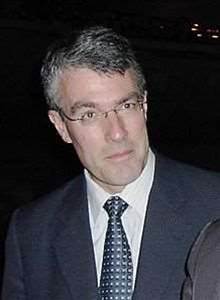Heavily redacted documents obtained by the ABC's AM program show the government was aware of the controversial United States PRISM mass surveillance scheme in March this year, with the Attorney-General's department briefing ministers on it.

The four documents released under the Freedom of Information Act run to nine pages in total. One, dated March 21 2013 called "Protected Brief to the Attorney-General" was refused release due to it "affecting national security, defence or international relations."
Snowden started leaking documents from the US National Security Agency (NSA) in June this year, resulting in a worldwide scandal as revelations of mass surveillance came to the fore. The previous Labor government maintained that PRISM and other NSA programs were internal American ones and declined to elaborate on Australian involvement in them.
According to a June 27, 2013 document, spy agency the Australian Signals Directorate (ASD) had not obtained direct or indirect access to "strategic components of the National Broadband Network in order to facilitate surveillance or monitoring of Australians," and nor had any other intelligence agency.
The documents list several questions to the Attorney-General from Greens Senator Scott Ludlam, including one asking if material obtained by the US National Security Agency (NSA) on Australian citizens without a warrant had been shared with local law enforcement or intelligence agencies.
Ludlam also queried the Attorney-General on whether the government considered it appropriate that US intelligence agencies appeared to be conducting "warrantless, real-time surveillance of the entire population," and if it or law enforcement and intelligence agencies also had their communications and information collected by PRISM.
He also asked if the government had offfered immunity from legal proceedings to companies "that open their servers to data intercepting efforts by Australian intelligence services".
The Greens senator received no reply to those questions, beyond a repeated statement from the Attorney-General that any surveillance activitiy in Australia was done according to the law.
Dr Sean Rintel, a board member of the Electronic Frontiers Australia digital freedom lobby group, told iTnews: "I believe we can surmise that the Australian Signals Directorate (ASD) shares all of this information with relevant security and law enforcement."
In June this year, The Age confirmed that Australian intelligence agencies received "huge volumes" of "immensely valuable" data from PRISM, with the HMAS Harman communications base being built to store the information.
The Australian government's willingness to admit it knew about PRISM contrasts to that of the UK where former cabinet minister Chris Huhne said he and other officials knew nothing of the spy programs.
Commenting on the heavily blacked-out documents and refusal to produce others, Rintel said the the story was really in what wasn't present.
"The interesting point to me stems from there just being four documents returned," Rintel said.
"Clearly the FOI request was being construed extremely narrowly, basically requiring the request to include the actual names of every relevant program rather than considering anything related or general," he added.
New Zealand police was found earlier this year to have had access to NSA collected PRISM information via the Government Communications Security Bureau (GCSB), in preparation for the large assault on Kim Dotcom's mansion in 2012.





_(28).jpg&h=140&w=231&c=1&s=0)





 iTnews Benchmark Awards 2026
iTnews Benchmark Awards 2026
 iTnews Executive Retreat - Security Leaders Edition
iTnews Executive Retreat - Security Leaders Edition
 iTnews Cloud Covered Breakfast Summit
iTnews Cloud Covered Breakfast Summit
 The 2026 iAwards
The 2026 iAwards












_(1).jpg&h=140&w=231&c=1&s=0)



